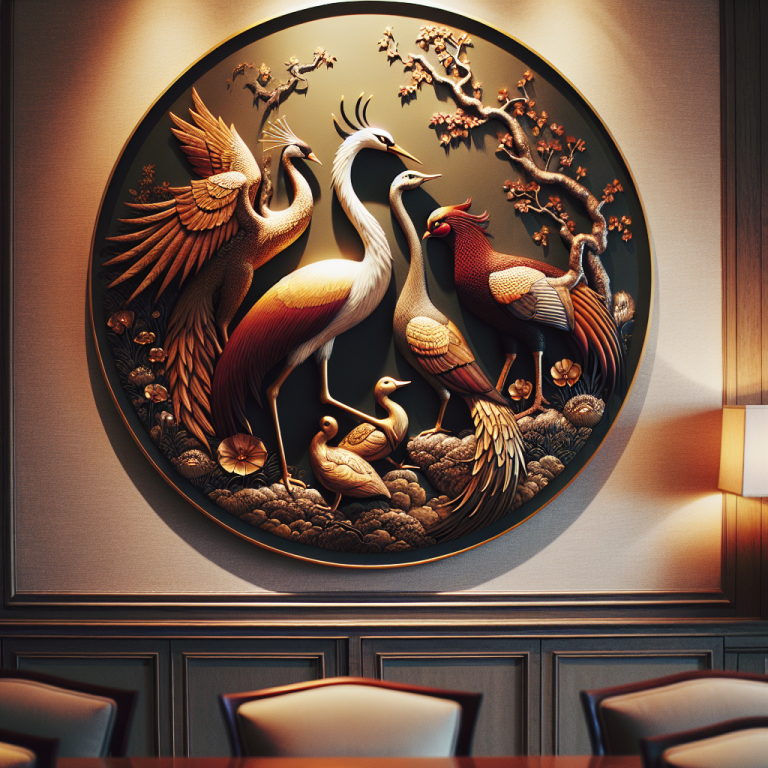Contents
- Can Feng Shui Boost Your Self-Trust? Unlocking Inner Confidence Through Ancient Wisdom
- The Power of Environment on Self-Trust
- Understanding Feng Shui and Self-Trust
- Key Feng Shui Principles for Enhancing Self-Trust
- Practical Steps to Implement Feng Shui for Self-Trust
- The Science Behind Feng Shui and Self-Trust
- Overcoming Challenges in Implementing Feng Shui
- The Ripple Effect of Increased Self-Trust
- Frequently Asked Questions
- Q: How long does it take to see results from Feng Shui practices?
- Q: Can Feng Shui help with specific areas of self-trust, like financial confidence?
- Q: Is it necessary to hire a Feng Shui consultant?
- Q: Can Feng Shui work in a workspace I don’t have control over, like a cubicle?
- Q: Are there any Feng Shui practices that could potentially decrease self-trust?
Can Feng Shui Boost Your Self-Trust? Unlocking Inner Confidence Through Ancient Wisdom
Have you ever walked into a room and instantly felt at ease, as if the space itself was giving you a warm embrace? Or conversely, entered an area that left you feeling drained and unsure of yourself? These experiences are not mere coincidences but rather examples of how our environment can profoundly impact our inner state, including our level of self-trust. This is where the ancient Chinese practice of Feng Shui comes into play, offering a unique approach to cultivating self-confidence and trust from the outside in.
The Power of Environment on Self-Trust
Imagine Sarah, a talented graphic designer who struggled with imposter syndrome. Despite her skills, she often doubted herself when presenting ideas to clients. One day, she decided to apply Feng Shui principles to her home office. She cleared the clutter, positioned her desk to face the door (the commanding position), and added elements that represented strength and creativity. Within weeks, Sarah noticed a shift – she felt more grounded, confident, and trusting of her abilities during client meetings.
This story illustrates how Feng Shui can be a powerful tool for boosting self-trust. But how exactly does it work?
Understanding Feng Shui and Self-Trust
Feng Shui, which translates to “wind and water,” is based on the idea that our surroundings affect our energy or “chi.” When our environment is in harmony, it supports our well-being and personal growth. Self-trust, on the other hand, is the confidence we have in our own abilities, decisions, and instincts.
The connection between Feng Shui and self-trust lies in how our environment can reinforce or undermine our self-perception. A cluttered, disorganized space can subconsciously create feelings of chaos and insecurity, while a well-arranged, harmonious environment can foster a sense of control and inner peace.
Key Feng Shui Principles for Enhancing Self-Trust
Clear the Clutter: A clutter-free space symbolizes a clear mind, allowing for better decision-making and self-assurance.
Use the Commanding Position: Positioning key furniture to have a clear view of the door can increase feelings of security and control.
Incorporate Empowering Colors: Colors like red, orange, and yellow can stimulate confidence and self-expression.
Balance the Five Elements: Incorporating wood, fire, earth, metal, and water elements in your space creates harmony and supports personal growth.
Utilize Mirrors Strategically: Mirrors can expand space and reflect positive energy, boosting self-image when placed correctly.
Practical Steps to Implement Feng Shui for Self-Trust
Create a Personal Power Spot: Designate an area in your home that’s solely dedicated to activities that boost your confidence, like meditation or affirmations.
Display Symbols of Achievement: Showcase awards, certificates, or meaningful objects that remind you of your capabilities.
Enhance Your Entryway: A welcoming, organized entrance sets a positive tone for your entire home and mindset.
Incorporate Natural Elements: Bring in plants, natural light, and organic materials to connect with nature’s grounding energy.
Use Affirmations and Imagery: Place positive affirmations or vision boards in key areas to reinforce self-trust visually.
The Science Behind Feng Shui and Self-Trust
While Feng Shui is rooted in ancient wisdom, modern research supports its potential impact on self-trust. Environmental psychology studies have shown that our surroundings can significantly influence our mood, behavior, and self-perception. For instance, a study published in the Journal of Environmental Psychology found that individuals in orderly environments were more likely to choose healthier snacks and make more generous donations, suggesting a link between our environment and our ability to make confident, positive choices.
Moreover, the concept of embodied cognition in psychology suggests that our physical experiences (including our environment) shape our cognitive processes. This means that a space designed to promote confidence and trust can actually help rewire our brain to embody these qualities more fully.
Overcoming Challenges in Implementing Feng Shui
Implementing Feng Shui principles doesn’t always come easily. Many people face challenges such as limited space, shared living arrangements, or skepticism from family members. However, the beauty of Feng Shui lies in its flexibility. Even small changes can make a significant impact.
For those in small apartments, focus on decluttering and using multifunctional furniture to create a sense of space. If you’re dealing with skeptical family members, start with subtle changes in your personal areas and lead by example as you experience positive shifts in your self-trust.
The Ripple Effect of Increased Self-Trust
As you begin to implement Feng Shui principles and notice an increase in your self-trust, you may find that this newfound confidence extends beyond your personal space. Improved self-trust can lead to better decision-making at work, healthier relationships, and a greater sense of overall well-being.
Remember Sarah, our graphic designer? Her increased self-trust not only improved her client interactions but also gave her the confidence to start a mentorship program for young designers, creating a positive ripple effect in her professional community.
Frequently Asked Questions
Q: How long does it take to see results from Feng Shui practices?
A: While some people report feeling immediate changes, it typically takes about 21-28 days to notice significant shifts in energy and self-perception.
Q: Can Feng Shui help with specific areas of self-trust, like financial confidence?
A: Yes, Feng Shui can be tailored to focus on specific life areas. For financial confidence, you might focus on enhancing the wealth corner of your home or office.
Q: Is it necessary to hire a Feng Shui consultant?
A: While a consultant can provide personalized advice, many people successfully implement basic Feng Shui principles on their own through research and intuition.
Q: Can Feng Shui work in a workspace I don’t have control over, like a cubicle?
A: Absolutely! Focus on elements you can control, such as desk organization, personal objects, and small plants.
Q: Are there any Feng Shui practices that could potentially decrease self-trust?
A: Improper use of mirrors (like facing your bed) or an overabundance of water elements in certain areas could potentially create imbalance. It’s important to research or consult an expert when in doubt.
In conclusion, while Feng Shui isn’t a magic solution, it offers a holistic approach to creating an environment that supports and nurtures self-trust. By mindfully arranging our spaces, we can create external conditions that reinforce our inner confidence and capabilities. As you embark on your Feng Shui journey, remember that the goal is to create a space that feels authentically supportive to you.
Ready to start your journey towards greater self-trust through Feng Shui? Explore our collection of Feng Shui-inspired jewelry and accessories at Feng Shui Bliss. Each piece is designed to harmonize your energy and remind you of your innate strength and wisdom. Visit us today and take the first step towards a more confident, empowered you!







